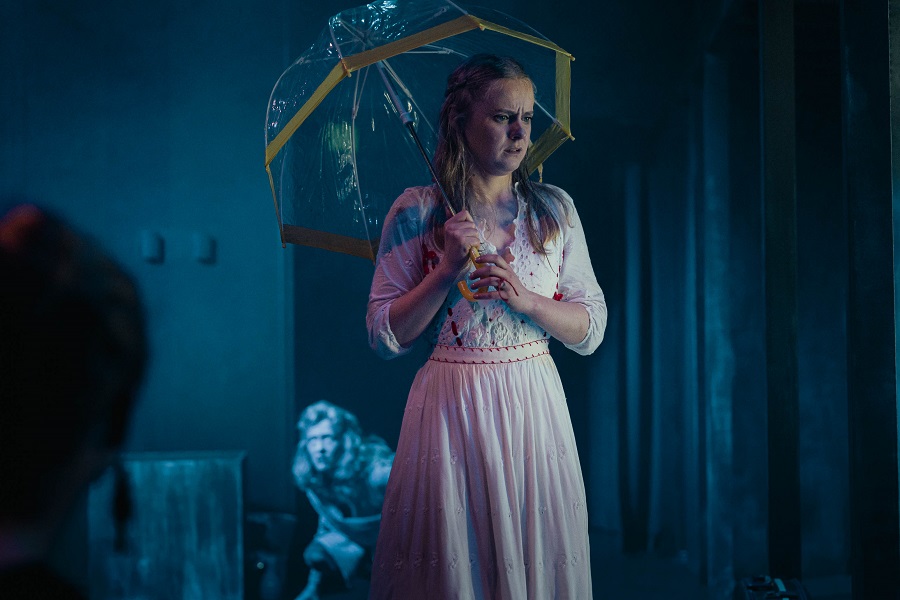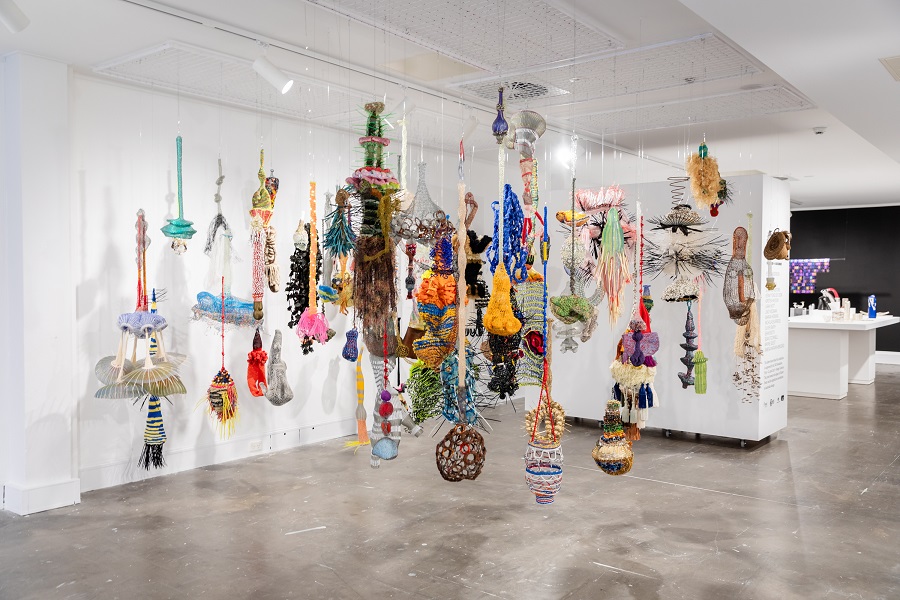
One man in his time plays many parts, The Bard once said, but one role Bell Shakespeare director Peter Evans won’t play is that of an actor.
“God no, you really don’t want to see me act,” Evans says, when asked if he was about to perform on stage in the coming production, In a Nutshell: The Poetry of Violence.
“I wouldn’t inflict that on anyone, I’ll be more in the role of lecturer, setting the scene,” he tells me by phone from the rehearsal room at Sydney’s Pier.
That’s because the whole concept is Evans’ own, his way of telling us about some ideas he’s had about Shakespeare in the years since he took over the company from founder John Bell in 2016.
It’s not the first time he’s done a show called In a Nutshell, but we didn’t see the earlier one in Canberra. The first iteration in 2022, he says, was “a whole bunch of different things presented in Shakespeare, mostly my favourites… The Poetry of Violence is similar but more focused.”
Now he’s turning specifically to the language of violence in Shakespeare’s plays.
The production takes a look at how violence is portrayed, from how he uses words to describe the limits of emotion and the rashness provoked by love and hate, to those for acts of gratuitous or political violence.
It’ll be done in “a very simple and elegant way as with everything we do,” he says, “a series of little wooden stages as a backdrop where we perform the plays… It will be like coming into a rehearsal.”
Evans admits it’s an unashamedly personal journey through scenes and speeches he loves, focused on the various ways Shakespeare explores and defines violence.
In that way it differs from the popular production Shakespeare’s Villains, the one-man play created and performed by Steven Berkoff from 1998 on, including in Canberra, which explored and analysed Shakespeare’s nastiest characters.
Evans says there’s a similarity with the concept of that show, which saw Berkoff talking and giving examples from plays, but that was more about the way he acted the parts and his insights into the characters, whereas this show is more giving insights into the themes.
“We’re trying to get through as many plays as we can,” he says.
Actors helping him do that will be Jessica Tovey, Lucy Bell (daughter of the company’s founder), Bell associate director James Evans, NIDA graduate Madeline Li and Sydney actor Darius Williams.
Evans has no shortage of material to choose from, so has jumped around, picking the best bits from plays such as Macbeth, Henry VI, Titus Andronicus, Coriolanus, Hamlet, Romeo and Juliet, Julius Caesar and Much Ado About Nothing.
Much Ado About Nothing? I ask, does that really touch on violence?
“Well, we do that a bit tongue in cheek,” Evans tells me.
“The other plays deal with conflicts like The Wars of the Roses, but this is more a ‘merry war’ fought between the main characters, Beatrice and Benedick.”
Mind you, he explains, the language used by Beatrice, played by Tovey, a former Bell Lady Macbeth, is drawn from exactly the same sources as a lot of the other violent language.
That includes the very famous opening banter, where Beatrice calls Benedick a “stuff’d man”, he calls her “a parrot-teacher” and she hits back with: “A bird of my tongue is better than a beast of yours.”
Given the chosen theme, an interesting part of The Poetry of Violence will be the presence of Nigel Poulton, normally known for his work behind the scenes as a movement and fight director, who’ll be using his expert knowledge of staging Shakespearean violence in a very practical way.
“We’ve written some lines for Nigel and he’s there to talk about how to stage fight scenes and to reveal what Shakespeare’s plays tell us about the different fighting styles. It’s another way to get into the text,” Evans says, adding that Poulton will be taking clues from the texts that audiences might not be aware of.
Early in Romeo and Juliet, for instance, Mercutio mocks Tybalt as “rat-catcher” and “King of Cats”, but when he snorts: “Ah, the immortal passado! The punto reverso!” he derides Tybalt’s Italian-style fencing manoeuvres too, a bit odd since the play is set in Verona, but as Evans notes, Verona is also really contemporary London.
And that kind of theatrical sophistication is part of the enduring fun of Shakespeare.
In a Nutshell: The Poetry of Violence, The Playhouse, September 13-14.
Who can be trusted?
In a world of spin and confusion, there’s never been a more important time to support independent journalism in Canberra.
If you trust our work online and want to enforce the power of independent voices, I invite you to make a small contribution.
Every dollar of support is invested back into our journalism to help keep citynews.com.au strong and free.
Thank you,
Ian Meikle, editor




Leave a Reply